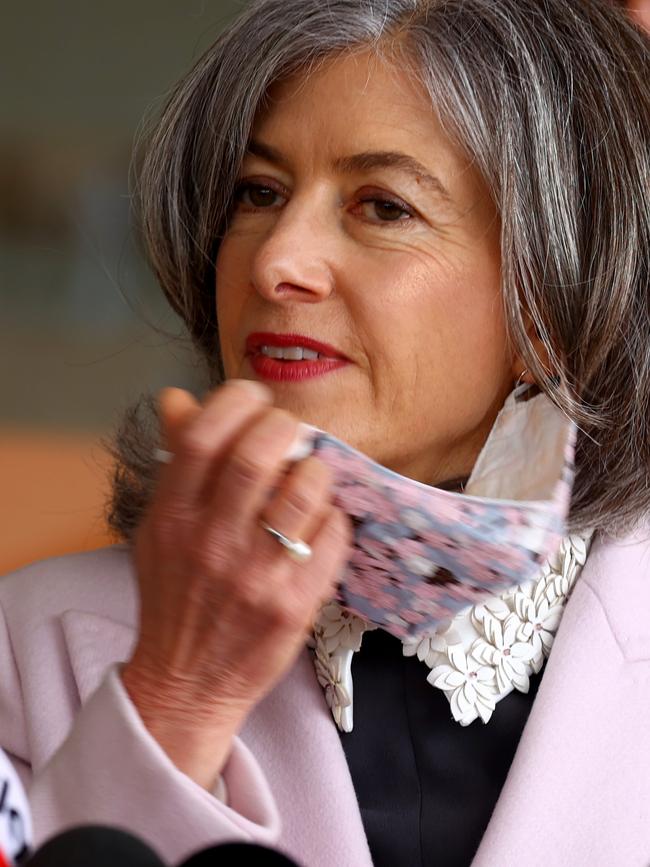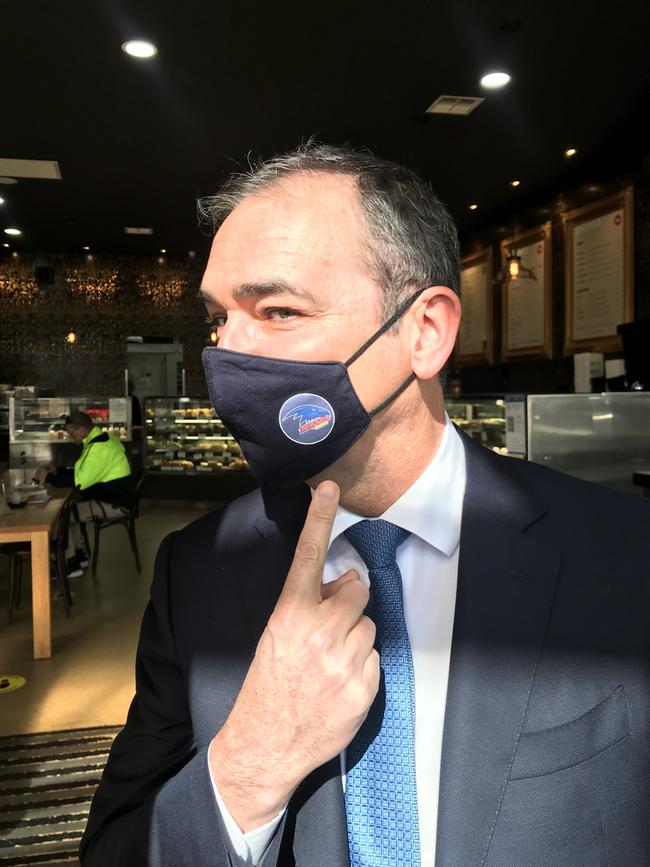Matthew Abraham: In short, the further you are from an infected person, the safer you are
Masks are enough to trigger a mini-panic attack and dash for the supermarket door but the expert opinion is in, writes Matthew Abraham.
Opinion
Don't miss out on the headlines from Opinion. Followed categories will be added to My News.
Of all the small, human niceties we’ve had to surrender in the past 18 months, the loss of our smiles is surely the most unexpected.
Put a mask on and, hey presto, smiles vanish completely. What’s going on behind that mask, nobody knows. It’s a poorer world when nobody outside your home can see you smile.
Masks. I hate them to bits.
I currently have several different models on the go – a few 10-packs of bog-standard paper masks grabbed from the hardware store, a thick three-layer mask run up by my wife on the Pfaff out of an old green rugby top, a lighter one made by our younger daughter who’s supplying a range of designs for the rest of the family, a black mask for formal occasions and an industrial mask with a breather port, just in case one needs to do a little arc welding.
They all fog your glasses. After 10 minutes breathing my own stale air behind a mask at the shops, I become dizzy and experience a low-level panic attack until escaping to the carpark to gulp in lovely fresh air. Poor baby.

Premier Steven Marshall, public health boss Professor Nicola Spurrier and Covid overlord Commissioner Grant Stevens are timidly stepping down restrictions after successfully stomping out the Modbury Covid outbreak.
But they’re keeping the compulsory mask diktat, requiring citizens to wear masks in almost all indoor social or work settings outside the home. We get into lockdowns fast but come out of them way too slowly.
We should trust their explanation that they’re acting on “the best medical advice” with the more infectious Delta variant causing grief and death in some parts of Sydney.
Still, it’d be nice to glimpse some of this advice driving decisions about our daily lives.
We’re told to avoid touching our faces to minimise the spread of the virus but we’re constantly fiddling with masks, which become damp within minutes thanks to the annoying act of breathing.
At the supermarket checkout, the young lad serving me paused for a swig of water from his bottle, adjusted his mask under his nose, and began swiping our groceries. Should I have suggested he use hand sanitiser?
Probably, but given he’s wearing a mask all day at work I thought it best to shut up.

Premier Marshall rocks up at his Covid media events wearing a black mask, takes it off, folds it neatly and tucks it away, then proceeds to handle his papers and the lectern.
This seems to defeat the whole point of wearing the thing but he’s not an infectious diseases expert so can be forgiven.
One of the nation’s best such disease experts, Canberra’s Professor Peter Collignon, recently published a brief and readable clinical perspective on Covid-19 and future pandemics, asking: Is isolation and social distancing the new norm? Short answer: for a while yet, but our response needs to be proportionate.
He says the overwhelming evidence is the virus is mostly spread in the community through the air, mainly in droplets rather than the smaller aerosol particles, even though these can remain in the air for some time.
In short, the further you are from an infected person, the safer you are.
“If aerosols were a predominant mechanism for infection, we would expect many others in the same rooms, buildings, buses or planes as an infected individual, or after they leave, to become infected,” he writes.
“This would include many who were not directly in line with the airflow and to see much higher infection rates in households. However, transmission rates, even in households where people are close together for two weeks or more, are usually less than 20pc.”
This might explain why despite almost 100 possible contamination sites for the Modbury cluster, including major shopping centres and a hospital, the infections were linked to just two places – a restaurant and a winery.
And where’s one of the few public places you can remove your masks? When sitting down to eat and drink at a restaurant, pub or winery.
Professor Collignon says surgical masks and face shields, if handled and worn properly, can give “high levels of protection to the wearer” and also reduce the transmission risk from a masked, infected person.
Premier Marshall’s stroke of genius has been to pick a fight with the virus, not other leaders.
We should pick a fight with the virus, not each other. So mask up, grin and bear it. We’re all still laughing on the inside.



